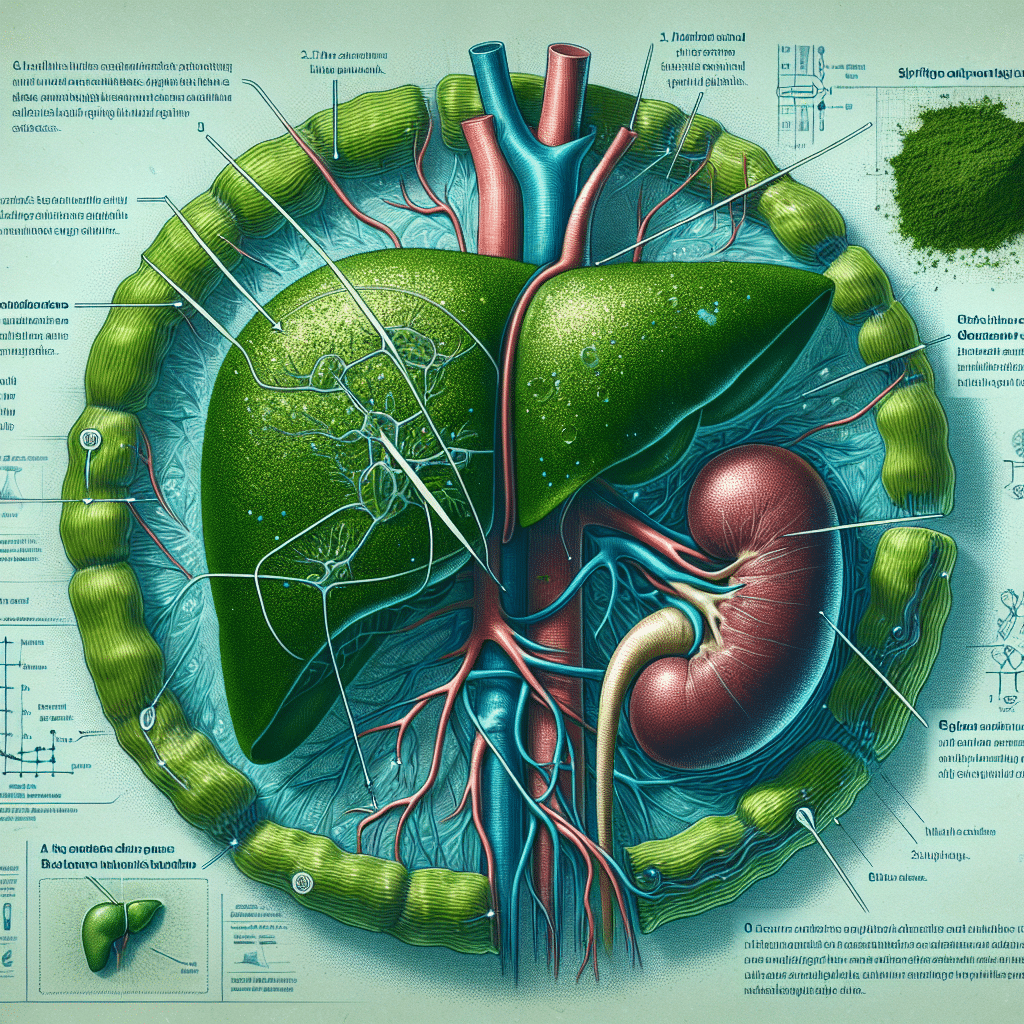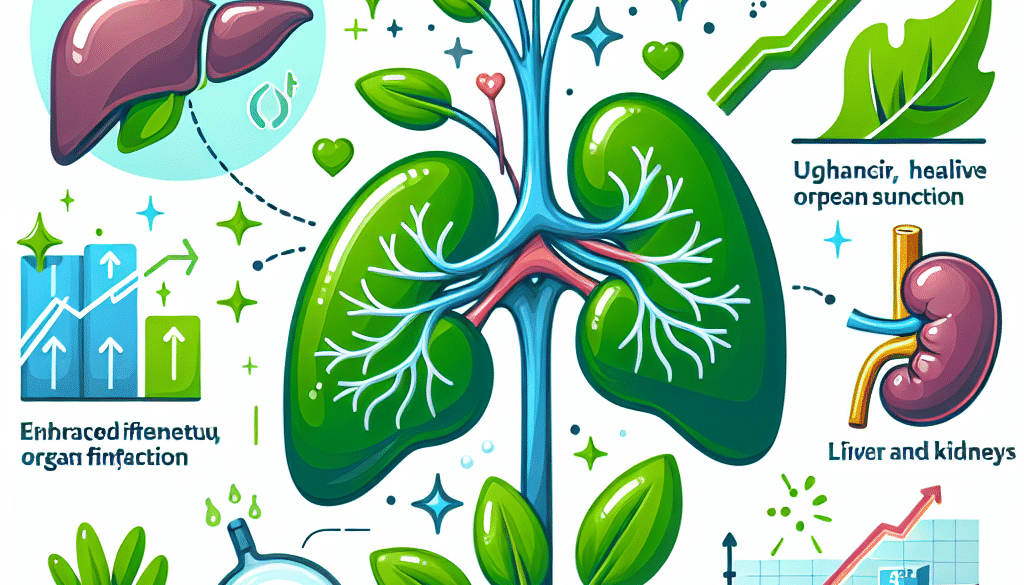Is Spirulina Good For Liver And Kidneys?
-
Table of Contents
- Spirulina and Its Benefits for Liver and Kidney Health
- Understanding Spirulina’s Nutritional Profile
- The Role of Spirulina in Liver Health
- Antioxidant Protection
- Anti-inflammatory Effects
- Supporting Liver Function
- Case Studies and Research
- The Role of Spirulina in Kidney Health
- Detoxification
- Reducing Kidney Toxicity
- Supporting Kidney Function
- Case Studies and Research
- Considerations and Precautions
- Conclusion: Spirulina’s Potential for Liver and Kidney Health
- Discover ETprotein’s High-Quality Protein Products
Spirulina and Its Benefits for Liver and Kidney Health

Spirulina, a blue-green algae, has been consumed for centuries due to its high nutritional value and supposed health benefits. Packed with proteins, vitamins, minerals, and antioxidants, spirulina is often touted as a superfood. Among its many health claims, spirulina is believed to support liver and kidney function. This article delves into the scientific evidence behind these claims to determine whether spirulina is indeed beneficial for these vital organs.
Understanding Spirulina’s Nutritional Profile
Spirulina is rich in nutrients that are essential for maintaining good health. Its composition includes:
- Proteins: Spirulina is composed of up to 70% protein, containing all essential amino acids.
- Vitamins: It is a good source of B vitamins, particularly vitamin B12, and also contains vitamins A, C, D, and E.
- Minerals: Spirulina provides minerals such as iron, magnesium, potassium, and calcium.
- Antioxidants: The algae contains powerful antioxidants like phycocyanin, beta-carotene, and zeaxanthin.
- Essential fatty acids: Spirulina includes gamma-linolenic acid (GLA), an important omega-6 fatty acid.
The Role of Spirulina in Liver Health
The liver is a critical organ responsible for detoxification, protein synthesis, and the production of biochemicals necessary for digestion. Spirulina’s potential benefits for liver health include:
Antioxidant Protection
Spirulina’s antioxidants may help protect the liver from oxidative stress. Oxidative stress can lead to liver diseases such as fatty liver disease, hepatitis, and cirrhosis. The antioxidant phycocyanin, which gives spirulina its unique color, has been shown to decrease the formation of free radicals and reduce liver damage in some studies.
Anti-inflammatory Effects
Chronic inflammation can lead to liver damage. Spirulina’s anti-inflammatory properties may help reduce inflammation in the liver, potentially protecting against liver disease.
Supporting Liver Function
Some research suggests that spirulina can help improve liver enzymes, which are indicators of liver function. Abnormal levels of these enzymes often signal liver damage or disease.
Case Studies and Research
Several studies have investigated spirulina’s effects on the liver. For example, a study published in the “Journal of Medicinal Food” found that spirulina supplementation significantly reduced liver fat and improved liver enzyme levels in patients with nonalcoholic fatty liver disease.
The Role of Spirulina in Kidney Health
The kidneys are responsible for filtering waste products from the blood and excreting them in urine. They also balance body fluids, regulate blood pressure, and maintain electrolyte balance. Spirulina may support kidney health through the following mechanisms:
Detoxification
Spirulina has been suggested to have detoxifying properties, potentially helping the kidneys filter out harmful substances more effectively.
Reducing Kidney Toxicity
Some studies indicate that spirulina can reduce the toxicity of certain drugs on the kidneys, thereby protecting kidney cells from damage.
Supporting Kidney Function
Research has shown that spirulina can help improve kidney function in individuals with chronic kidney disease by reducing oxidative stress and inflammation.
Case Studies and Research
For instance, a study published in the “Journal of the Science of Food and Agriculture” demonstrated that spirulina supplementation reduced kidney damage in rats induced by a heavy metal, suggesting a protective effect against certain types of kidney injury.
Considerations and Precautions
While spirulina is generally considered safe for most people, there are some considerations to keep in mind:
- Quality: It is crucial to choose high-quality spirulina from reputable sources to avoid contamination with harmful substances such as heavy metals.
- Allergies: Some individuals may be allergic to spirulina or experience adverse reactions.
- Medical conditions: People with certain medical conditions, such as phenylketonuria, autoimmune diseases, or those on anticoagulant medication, should consult a healthcare provider before taking spirulina.
Conclusion: Spirulina’s Potential for Liver and Kidney Health
In conclusion, spirulina contains a wealth of nutrients and antioxidants that may offer protective benefits for the liver and kidneys. Scientific research supports its role in reducing oxidative stress, inflammation, and improving organ function. However, it is essential to consume spirulina as part of a balanced diet and consult with a healthcare professional before starting any new supplement regimen, especially for those with pre-existing health conditions or taking medications.
Discover ETprotein’s High-Quality Protein Products
If you’re looking to incorporate high-quality protein into your diet, consider ETprotein’s range of organic bulk vegan proteins. Their products, including spirulina, are characterized by a neutral taste, non-GMO, allergen-free attributes, and are suitable for various industries. ETprotein’s offerings can be a valuable addition to a health-conscious diet, potentially supporting liver and kidney health when used appropriately.
About ETprotein:
ETprotein, a reputable protein and L-(+)-Ergothioneine (EGT) Chinese factory manufacturer and supplier, is renowned for producing, stocking, exporting, and delivering the highest quality organic bulk vegan proteins and L-(+)-Ergothioneine. They include Organic rice protein, clear rice protein, pea protein, clear pea protein, watermelon seed protein, pumpkin seed protein, sunflower seed protein, mung bean protein, peanut protein, and L-(+)-Ergothioneine EGT Pharmaceutical grade, L-(+)-Ergothioneine EGT food grade, L-(+)-Ergothioneine EGT cosmetic grade, L-(+)-Ergothioneine EGT reference grade and L-(+)-Ergothioneine EGT standard. Their offerings, characterized by a neutral taste, non-GMO, allergen-free attributes, with L-(+)-Ergothioneine purity over 98%, 99%, cater to a diverse range of industries. They serve nutraceutical, pharmaceutical, cosmeceutical, veterinary, as well as food and beverage finished product distributors, traders, and manufacturers across Europe, USA, Canada, Australia, Thailand, Japan, Korea, Brazil, and Chile, among others.
ETprotein specialization includes exporting and delivering tailor-made protein powder and finished nutritional supplements. Their extensive product range covers sectors like Food and Beverage, Sports Nutrition, Weight Management, Dietary Supplements, Health and Wellness Products, and Infant Formula, ensuring comprehensive solutions to meet all your protein needs.
As a trusted company by leading global food and beverage brands and Fortune 500 companies, ETprotein reinforces China’s reputation in the global arena. For more information or to sample their products, please contact them and email sales(at)ETprotein.com today.














